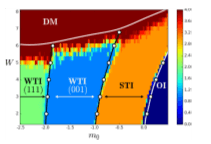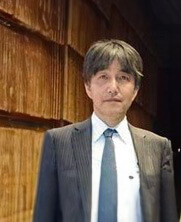SEMINAR 2023
Machine learning the phase diagrams and magneto-fingerprints in disordered quantum systems
| Speaker | Tomi Ohtsuki, Physics Division, Sophia University, Tokyo, Japan |
| Date/Time | Wednesday, 20 December, 3PM |
| Location | Conference room: S11-02-07 |
Abstract
Machine learning has recently been applied to many problems in condensed matter physics. Convolutional neural networks (CNN) have proved to work well for assessing eigenfunctions in disordered systems. Here we apply a CNN to draw phase diagrams of disordered topological and non-topological systems [1]. We then apply the machine learnig technique to decipher the quantum fingerprint that appears in the magnetoresistance in mesoscopic systems [2]. Using the variational autoencoder, we reproduce the interference patterns of scattering wave functions from the magneto-resistance.
[1] T. Ohtsuki et al., Deep learning the quantum phase transitions in random two-dimensional electron systems, J. Phys. Soc. Jpn. 85, 123706 (2016), Drawing Phase Diagrams of Random Quantum Systems by Deep Learning the Wave Functions, J. Phys. Soc. Jpn. 89, 022001 (2020).
[2] S. Daimon et al., Deciphering quantum fingerprints in electric conductance, Nature Comm. 13, 3160 (2022).



Biography
I earned my Ph.D. from the University of Tokyo in March 1989 and presently serve as a professor at Sophia University in Tokyo, Japan. My primary focus lies in theoretical and computational condensed matter physics, where I’ve studied quantum transport phenomena. This includes the Anderson transition, conductance fluctuations, and both Hall and spin Hall effects, particularly in nanoscale systems.
Over the past decade, my research has broadened to encompass three-dimensional topological materials, with an emphasis on disorder effects on topological insulators and Weyl semimetals. About seven years ago, I delved into the challenges of studying the randomness effects on topological materials using multilayer convolutional neural networks to explore quantum phase transitions in both topological and non-topological materials. Furthermore, I hold a keen interest in understanding the localization-delocalization transition in non-Hermitian systems. I was honored with the “Outstanding Referee” award by the American Physical Society in 2021.
